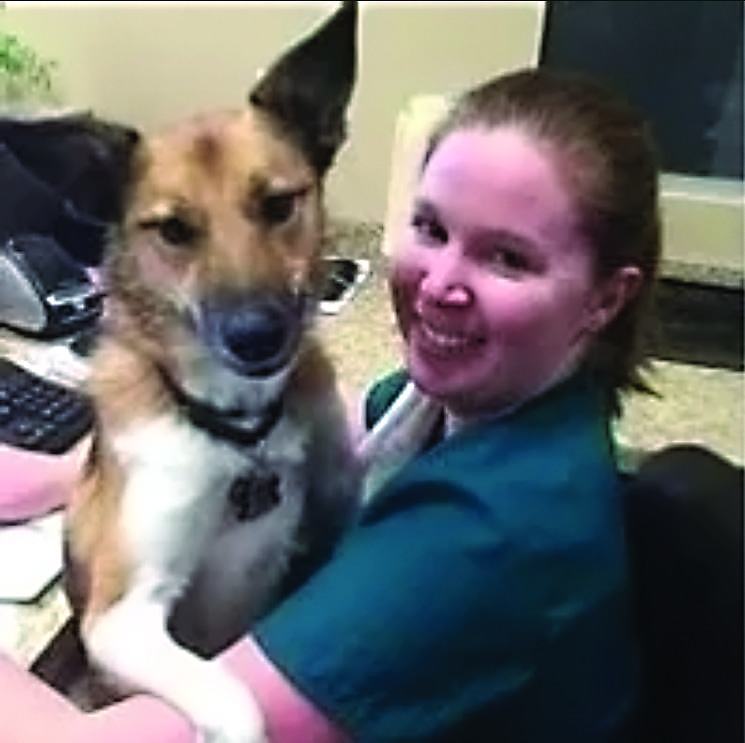Animal shelter observes anniversary, plans expansion
The Manchester Animal Shelter has found homes for more than 25,000 animals since it opened 25 years ago. Executive Director Kendra Paul talked about how the shelter has evolved over that time and its plans to continue expanding its facility and programs.
How has the shelter grown since it started 25 years ago?
Well, it’s been 25 years since we’ve been at this location, but actually, before that, [the shelter] used to be located across the street and was primarily run by the Manchester Police Department as more of a pound setting. When we built the [current] building on this side of the street, we made it more homey for the animals in terms of giving them nice spaces. The dogs have indoor-outdoor runs now. The cat cages are a little bit bigger. We have a community room where cats can walk around freely so that they’re able to have that enrichment and socialization that they wouldn’t otherwise get, just being in a cage. We’ve also started a lot of new programs here, such as Fix a Pit, where we spay and neuter pit bulls in the Manchester area for free. We do low-cost spay-neuter clinics called our Quick Fix program. We also have a [pet] food pantry, and that has been really utilized, especially since Covid hit; with so many people losing their jobs and unable to [provide] food for their pets, we’ve really seen a big need in the community in that area.
In what ways do you plan to continue growing?
We’re looking to expand the shelter, because, in the 25 years we’ve been here, we haven’t really touched the building or made any significant additions other than putting the trailer in, but we’re really running out of space now. The city is growing and the programs are growing, we’re seeing more animals, and we just need more space to really accommodate everyone, not only the team working here but the animals as well. We’re looking to add more cage space, to have a better setup for staff to be able to work and get their stuff done, and redo the kennels so that they’re less like a pound and more homey and relaxing-feeling for the dogs. Going forward, we want to have more of a community outreach program and find any ways we can to get out into the community and help and increase our presence as much as possible so that we’re there when people need us.
What’s in the works right now?
We’re really trying to get that expansion off the ground so that we can help more animals. … We’ve met with an architect, and he’s going to put together some plans. Once we get those plans, we’re going to be trying to get people to help us in terms of fundraising, donations — any way that the community can come in and help and support us.
What kinds of challenges has Covid posed for the shelter?
I’d say the biggest challenge we’ve had is probably fundraising. Being a nonprofit, we are really counting on the community to help us with raising money for these programs, for feeding the animals and for medical costs. Not being able to have in-person events or fundraisers has really been an issue here for us as well as many other nonprofits. … Another challenge is that, with people losing their jobs or getting laid off, we’ve seen an increase in the number of owners surrendering their pets.
How have you been dealing with those challenges?
We’re trying to be really creative in thinking of ways to cut costs and save money. … We’ve reached out to the community and have really had to rely on the community to come together … [to help] when we are running low on the food pantry or need donations [to cover] peanut butter and food and toys and different things that we need for the animals. People have been absolutely amazing and very generous with that, and we’re so grateful.
What makes Manchester Animal Shelter unique?
I think one of the biggest things that make us unique is our volunteer base. We just have so many dedicated people, staff and volunteers. We’re always being told that we’re ‘the little shelter with the big heart,’ and it really does ring true for us. There’s so much passion and dedication with these animals and with our volunteers and team members that I think that alone kind of sets us apart. I also think that our community programs set us apart, because there aren’t many places that offer things like the Fix a Pit program or being able to do offsite time with the dogs where they can go for hikes and go out on the trails to get a break from the shelter. These are programs that not every shelter gets to have, and we’re very fortunate that we’re able to do those things.
How can people help the shelter?
Right now, people could help us the most by donating to this [expansion] project. We’re hoping to do some fundraising challenges or events that are safe in the midst of Covid, like virtual events or online raffles and things like that.
Featured photo: Kendra Paul. Courtesy photo.




